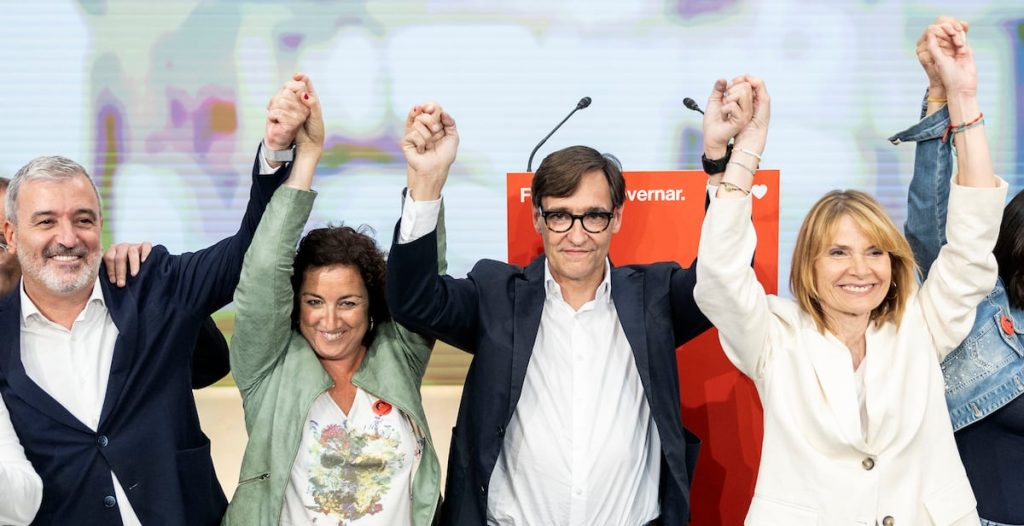The Party of the Socialists of Catalonia (PSC) won the regional elections on Sunday, achieving a historic victory in both votes and seats. The success of Salvador Illa’s candidacy, which gained 9 seats for a total of 42, and the decline of the independence bloc, signify a shift in Catalonia’s political landscape, with citizens choosing to move past the divisive independence process. This change also includes the strengthening and hardening of right-wing parties, such as Junts, PP, and the entrance of Vox and Aliança Catalana into the Parliament.
The victory of PSC, led by Salvador Illa, positions him as the most viable candidate for a potential investiture. The results validate Pedro Sánchez’s policy of reconciliation and dialogue, which has garnered both support and criticism, particularly regarding decisions like the pardons and the proposed amnesty law. This election reflects a move away from the victimization narrative pushed by pro-independence groups, signaling a shift towards a more nuanced political landscape in Catalonia and Spain as a whole.
The current scenario suggests a government supported by a majority of 68 deputies, comprising 42 from PSC, 20 from Esquerra Republicana, and 6 from Comuns. This coalition could potentially usher in a left-wing program that seeks to move beyond the binary dynamics of independence versus constitutionalism that have dominated recent electoral cycles. The relatively low voter turnout reflects the exhaustion of a community that has been embroiled in political tension for years.
The Catalan nationalism, transformed into separatism, has lost its majority in the Parliament for the first time since 1980. The election results reflect a society weary of a decade of polarization and institutional paralysis, calling for a new chapter to begin. Parties like ERC, led by Pere Aragonès, face a reevaluation of their strategies, as the electorate demands a fresh approach to governance that prioritizes issues affecting daily life over divisive independence rhetoric.
Vox’s strong showing in the election, maintaining its 11 seats, and the growth of the PP to 15 seats highlight the continuing appeal of right-wing politics in Catalonia. The rise of Aliança Catalana, an ultranationalist party, underscores the persistent influence of far-right ideologies in the region. All parties must reflect on the dangers of normalizing extremist rhetoric, particularly as the European elections loom, signaling a critical moment for Catalan politics to confront and address these challenges.
The election outcome signals a mandate for the newly elected representatives in the Parliament to form a stable government that can address the everyday needs and concerns of the Catalan community. The electorate’s desire for a change in political direction indicates a readiness for a shift away from the previous era of tension and deadlock, paving the way for renewed governance focused on practical solutions and cooperation.


